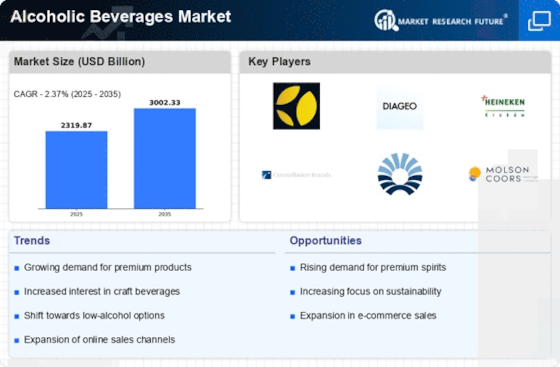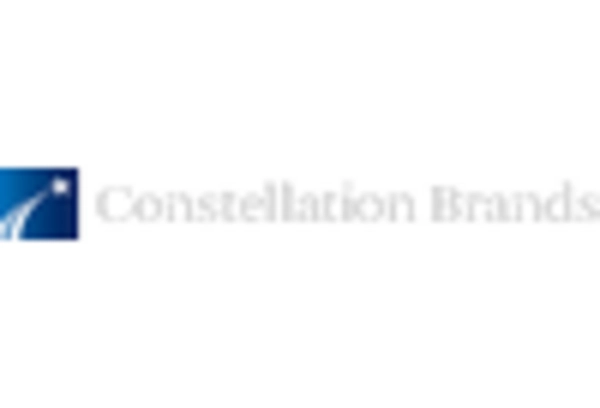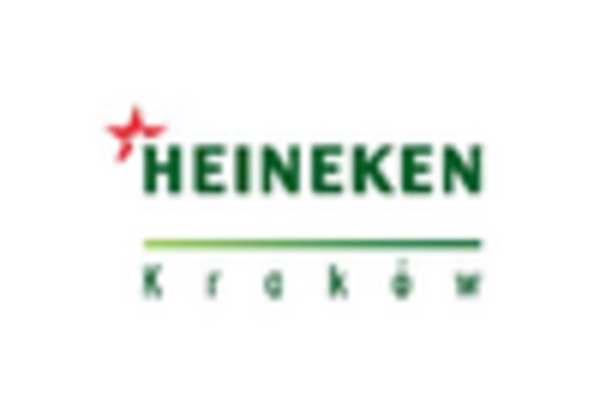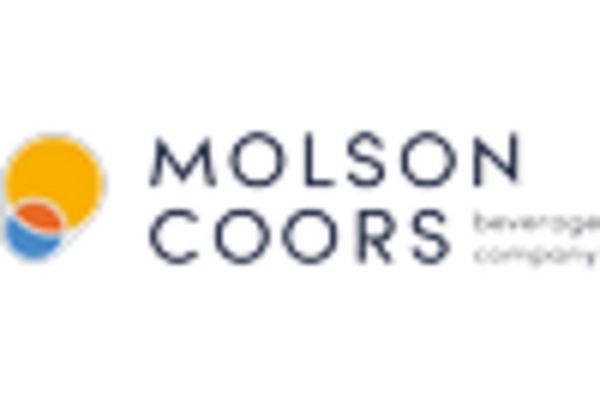Market Share
Alcoholic Beverages Market Share Analysis
In this diverse environment of the alcoholic beverages market, companies adopt various market share positioning strategies to distinguish themselves from each other and meet Changing consumer tastes in an uneven competitive field. but one basic strategy is product diversification. Such companies may offer a wide variety of alcoholic drinks including beers, wines and spirits or cocktails ready-to-drink to cater for every taste bud. Through the emphasis on unique taste characteristics profiles, production processes or geographical origin businesses can focus their specialization and target those who are interested in distinctive features of their alcoholic drinks. Market share positioning in the alcoholic beverages cannot do without strategic partnerships and collaborations. Companies frequently engage in partnerships with breweries, wine producers or even other market players. These partnerships are not only improving the quality of alcoholic beverages but also aid in positioning a company to reach more clients globally thus creating a stronger market stand. Pricing strategy is key to determine market share dynamics in the alcoholic beverages market. For example, some companies choose a value-oriented strategy to provide cost effective options that would be attractive for budget conscious consumers. Some adopt premium pricing strategies, wherein they market their products as superior quality or luxury choices for those who prefer more refined alcoholic drinks. Market share positioning is determined by the distribution channels, and suppliers in alcoholic beverages market target development of large-scale and wide range of distributive networks. Consumers do not have to look far for alcohol beverages as they reach them through partnerships with liquor stores, bars, restaurants, and online shopping platforms. Brand image and reputation are also important factors in the competitive landscape of Alcoholic Beverages Market. Companies invest so much in branding and marketing efforts to make products appear desirable. Focusing on such features as heritage, craftsmanship and specific processes of brewing or distillation helps to create a powerful brand image. A positive brand image not only draws consumers but also creates a sense of loyalty, which is important for ensuring the growth in market share over time.


















Leave a Comment